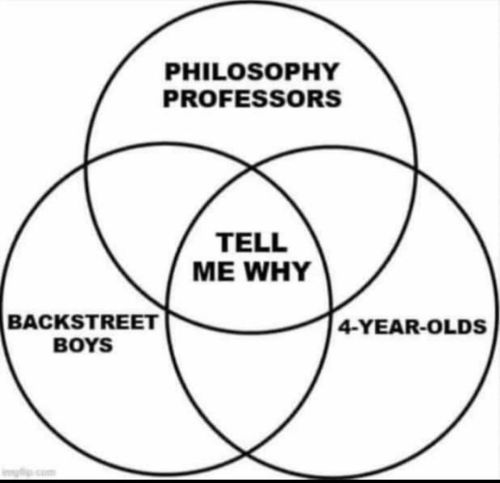Gorgeous Drawings, And An Awesome AU Story. ❤️❤️❤️
Gorgeous drawings, and an awesome AU story. ❤️❤️❤️

~ House of Gentians || Wangxian AU comic ~
~Synopsis~
An Alternate Universe set in canon MDZS world where Yiling Laozu Wei Wuxian admitted defeat and surrendered to the other sects of the cultivation world. However, hearing Lan Wangji’s confession, which he doesn’t care much for, he proposed to make a deal with Lan Wangji – he will return with him to Gusu just like the other always wanted to, and even marry him, all in order to have Lan Wangji’s word that the Wen remnants will stay out of harm.
Wei Wuxian, being legally married to Lan Wangji, is now a member of Gusu Lan sect, and thus Lan Wangji can keep him out of harm. However Lan Wangji is bound to another contract as well: he promised to Lan Qiren and to the other sect leaders that the Yiling Laozu will stay confined in one place and never leave for the rest of his days. Thus, Wei Wuxian stays in the house that belonged to Lan Wangji’s mother, who shared almost the same fate as Wei Wuxian in the past.
Shattered, weak, defeated, golden-core-less and hopeless, Wei Wuxian takes what he believes to be his punishment, not believing that Lan Wangji actually wants to shelter him from harm, and not believing that he really loves him, thinking this all is some cruel joke. Lan Wangji will have to deal with all that, earn Wei Wuxian’s trust and prove him his feelings are true.
~Background of this project~
This comic started out completely randomly with just a quick sketch of Yiling Laozu (first drawing in the first arc). I imagined him confined in Lan Wangji’s mother’s house, married to him out of contract, and agreeing to do “wify-papapa” stuff with him with ambivalence, thinking it’s his part of the deal. The next few sketches are depiction of various scenes from that idea, but then slowly I started developing it into an organized continuous plot, and now I have ideas for the rest of it!
People on twitter and beyond seemed to like it and it really motivates me to continue! ~START READING HOUSE OF GENTIANS~ ARC 1 ARC 2
More Posts from Weishenmewwx and Others
Here is Part 5 of my annotations of First Edition MDZS, Volume 1, pages 264 - 341.










Terms You Might Want To Know For Your Wuxia/Xianxia Fic
MXTX's danmei are getting increasingly popular, and the fandoms are getting more fic-happy. I've noticed that some writers seem interested in writing their own fics but are concerned of making mistakes with niche honorifics and titles. I've noticed some that have jumped right in, but have made innocent errors that I'd like to correct but fear coming off as rude or presumptuous. And so I've made this list of terms that covers the basics and also some that are a little more niche since they're usually directly translated in cnovels.
DISCLAIMER: This is by no means a comprehensive list of everything one needs to know or would want to know concerning ancient Chinese honorifics and titles, merely what I myself consider useful to keep in mind.
Titles
Shifu: 'Martial father'; gender-neutral
Shizun: 'Martial father'; more formal than 'shifu'; gender-neutral
Shimu: ‘Martial mother’; wife of your martial teacher
Shiniang: ‘Martial mother’; wife of your martial teacher who is also a martial teacher
Shibo: elder apprentice-brother of your shifu; gender-neutral
Shishu: younger apprentice-brother of your shifu; gender-neutral
Shigu: apprentice-sister of your shifu
Shizhi: your martial nephew/niece
Shimei: younger female apprentice of the same generation as you
Shijie: elder female apprentice of the same generation as you
Shidi: younger male apprentice of the same generation as you
Shixiong: elder male apprentice of the same generation as you
Shige: elder male apprentice of the same generation as you, specifically one who has the same shifu as you or is the son of your shifu
Zhanglao: an elder of your sect
Zhangbei: a senior of your sect
Qianbei: a senior not of your sect
Wanbei: a junior not of your sect
Zongzhu: Address for a clan leader
Zhangmen: address for a sect leader
Daozhang: Daoist priests or simply a cultivator in general; gender-neutral
Daogu: Daoist priestess or a female cultivator; not as commonly used as 'daozhang'
Xiangu: Daoist priestess or a female cultivator; not as commonly used as 'daogu'
Sanren: a wandering cultivator
Xianren: 'Immortal Official'; a title of respect and power like 'General'
Xiuzhe: 'Cultivator', can be shortened to 'Xiu'
Xianjun: 'Immortal Master/Lord'
Xianshi: 'Immortal Master/Teacher'
Dashi: 'Great Teacher', address for monks
Xiansheng: Teacher/Sir; in ancient China, the connotation is very scholastic
Houye: address for a duke
Jueye: address for a noble lord, ei. a duke, marquess, earl, etc.
Wangye: address for king/imperial prince
Daren: address for imperial officials
Furen: Madam; the wife of an imperial official/nobleman OR a married woman granted a rank by the royal family
Nushi: Madam; the counterpart of 'xiansheng', connotation is scholastic
Taitai: Madam; address for an old married woman of the gentry, either wife or mother to head of household
Laoye: Old Lord; Address for an adult man with adult children of the gentry; possibly head of household
Nainai: Madam; Address for a married woman of the gentry, possibly wife of head of household
Ye: Lord; address for an adult man of the gentry, possibly head of household
Shaonainai: Young Madam; address for a woman married to a young man of the gentry
Shaoye: Young Lord; address for a young man or boy of the gentry, generation lower than head of household
Xiaoye: Little Lord; can be a synonym for ‘shaoye’ OR the son of a shaoye if ‘shaoye’ is already being used within the family
Xiaojie: Young Mistress; address for an unmarried woman or young girl of . . . the gentry and only the gentry, I believe. Correct me if you know for certain this is incorrect. (WARNING - It's an archaic term that should really only be used in an archaic setting if being used as a title instead of a suffix, because the modern vernacular has it as a term for a prostitute in mainland China. [Surname]-xiaojie is fine; Xiaojie by itself should be avoided.)
Gongzi: ‘Young Master/Lord/Sir'; ‘Childe’; young man from a household of the noble or gentry class
Guniang: 'Young Master/Lady/Miss'; ‘Maiden’; an unmarried woman or young girl from a household of the noble or gentry class
Laozhang: 'Old battle'; polite address for an unrelated old man of lower status than you
Laobo: polite address for an unrelated old man of a higher status that you
Laotou: 'Old man'; informal but not derogatory, implies fondness/closeness
Laopopo: 'Old woman'; informal but not derogatory, implies fondness/closeness
Please note that all of these listed above can be used as stand-alone titles or as suffixed honorifics.
Strictly Prefix/Suffix
-shi: 'Clan'; the suffix for a married woman, essentially means 'née'. (ex. Say Wei Wuxian was a woman and married into the Lan clan through a standard marriage. She would be called 'Wei-shi' by her husband's contemporaries and elders when not in a formal setting. It implies lack of closeness; used by acquaintances.)
a-: A prefix that shows affection or intimacy.
-er: A suffix that shows affection or intimacy; typically for children or those younger than you
-jun: 'Nobleman'; a suffix for a greatly respected man
-zun: 'Revered One'; a suffix for a greatly respected man
-ji: A suffix for a female friend
-bo: A suffix for an older man of your grandparents' generation
-po: A suffix for an older woman of your grandparents' generation
杀破狼 Stars of Chaos
My Seven Seas translation live-blog has begun!
(It accompanies my Occasional Yelling Into the Void live-blog of my Chinese re-read of 杀破狼.)
Note #1:
The appendixes are Awesome. Really well done for cultural and world-specific context.
If you don’t know the story yet, I suggest Skipping the Character Guide until at least the end of the first arc (too many spoilers)(just finish the Prologue), and skip the Location Guide (too boring).
Start with the Name Guide on page 434.
THE UNTAMED SUMMARIZED

My new favorite passage describing a character is from ch 337 of 2Ha, describing Jiang Xi:
他的打扮永远让人觉得他在说:“我很有钱,欢迎来抢”,但是没有人抢得了他。
His style of dressing always led people to feel he was saying, “I am very rich. You are welcome to rob me,” but no was ever able to rob him.
他那张俊脸上好像也写着:“想睡我吗,我知道你想”,但没有人能睡得了他。
That handsome face of his also seemed to announce “You want to sleep with me. I know you want to,” but no one was ever able to sleep with him.
(Translations are mine. You can tell because they are very bad and don’t convey just how clever this passage is. Translating is hard!)
I just finished 魔道祖师 Mo Dao Zu Shi Read #2. I kinda keep expecting fanfare— trumpets or fireworks or at least a dramatic swell of music filling the house! But, alas, it’s just me. Everyone around me assumes it’s just a normal night in.
I read Reader Comments this time (in the kunnu.com version), and I must admit, I really enjoyed them. The last chapters (113, the Official Last Chapter, and 126, the Last Chapter Published) are full of comments commemorating First Read Complete! Second Read Complete! Fifth Read! Nth Read!
So many “Nth Read!” comments. I can’t think of any book I’ve read more than three times, much less so many times that one would lose count. It’s not like putting on your favorite movie while you do your chores - you have to Concentrate and Focus to read!
It’s nice to know that there are people out there who also can’t find their way out of the MDZS rabbit hole, who also love WangXian so much that they re-read and re-read and re-read, who know exactly what’s going to happen but still want to experience it again and again and again.
And there Will be fireworks this weekend, to commemorate “my Second Read-Through 😘”.
(What book have you read more than once? Do you know why you go back to it over and over?)
all right guys, let’s have a conversation about linguistic register, Lan Wangji, and I guess Wei Wuxian can come too
(and I do genuinely mean conversation, I’d love to hear other people’s input on this, because I did just write a long-ass post about the subjectivity of interpretation in translations)
So when I started interacting with the fandom and reading people’s fics, I got really confused by the way some folks were writing dialogue for Lan Wangji; he often sounded super awkward, spoke in fragments, and sometimes exclusively in third person. To be fair, all of those are elements of his speech at various times, but like, seeing it in English-language material felt like a really heavy-handed way of rendering it in translation?

I guess when you use third person within the first three episodes of the show, it makes a pretty big impression on the audience
This is not at all intended to be a criticism of people who are 1000% writing and creating wonderful work, which is more than I can say for myself, but I want to poke and prod and tease at some linguistic nuance here.
Take a deep breath, grab a pot of tea (this’ll take more than a cup), because we’re going to take the scenic route on this one–
Keep reading




-
 meacostumbro liked this · 4 weeks ago
meacostumbro liked this · 4 weeks ago -
 strawberries-and-lions liked this · 4 weeks ago
strawberries-and-lions liked this · 4 weeks ago -
 mrowowow liked this · 4 weeks ago
mrowowow liked this · 4 weeks ago -
 winnietheblog liked this · 1 month ago
winnietheblog liked this · 1 month ago -
 sefju liked this · 1 month ago
sefju liked this · 1 month ago -
 auro-baka liked this · 1 month ago
auro-baka liked this · 1 month ago -
 dorincitaaa reblogged this · 1 month ago
dorincitaaa reblogged this · 1 month ago -
 dorincitaaa liked this · 1 month ago
dorincitaaa liked this · 1 month ago -
 ryou66 liked this · 1 month ago
ryou66 liked this · 1 month ago -
 yellowjelo reblogged this · 1 month ago
yellowjelo reblogged this · 1 month ago -
 gem-rdcr reblogged this · 1 month ago
gem-rdcr reblogged this · 1 month ago -
 gem-rdcr liked this · 1 month ago
gem-rdcr liked this · 1 month ago -
 filesofsnow liked this · 1 month ago
filesofsnow liked this · 1 month ago -
 syrupsys liked this · 1 month ago
syrupsys liked this · 1 month ago -
 doctor-lantan liked this · 1 month ago
doctor-lantan liked this · 1 month ago -
 huh-blah-blah-blah liked this · 1 month ago
huh-blah-blah-blah liked this · 1 month ago -
 zabonako liked this · 1 month ago
zabonako liked this · 1 month ago -
 iwanttopensia liked this · 1 month ago
iwanttopensia liked this · 1 month ago -
 noramoya liked this · 1 month ago
noramoya liked this · 1 month ago -
 mouthisempty liked this · 1 month ago
mouthisempty liked this · 1 month ago -
 certainwombatfart reblogged this · 1 month ago
certainwombatfart reblogged this · 1 month ago -
 kimmoony1521 liked this · 1 month ago
kimmoony1521 liked this · 1 month ago -
 marchiska liked this · 1 month ago
marchiska liked this · 1 month ago -
 therealscarymarlowe liked this · 1 month ago
therealscarymarlowe liked this · 1 month ago -
 angelmelody69 reblogged this · 1 month ago
angelmelody69 reblogged this · 1 month ago -
 ilovealldramas liked this · 1 month ago
ilovealldramas liked this · 1 month ago -
 ch3353cake-29 liked this · 1 month ago
ch3353cake-29 liked this · 1 month ago -
 fanworks-metas reblogged this · 1 month ago
fanworks-metas reblogged this · 1 month ago -
 nimedhel89 reblogged this · 1 month ago
nimedhel89 reblogged this · 1 month ago -
 nimedhel89 liked this · 1 month ago
nimedhel89 liked this · 1 month ago -
 littlecoffindoll liked this · 1 month ago
littlecoffindoll liked this · 1 month ago -
 lampsdsf reblogged this · 1 month ago
lampsdsf reblogged this · 1 month ago -
 mentallyillreader liked this · 1 month ago
mentallyillreader liked this · 1 month ago -
 cyancookie liked this · 1 month ago
cyancookie liked this · 1 month ago -
 lili-tu liked this · 2 months ago
lili-tu liked this · 2 months ago -
 meliaka-the-fallen liked this · 2 months ago
meliaka-the-fallen liked this · 2 months ago -
 beautifullycrystalqueer liked this · 2 months ago
beautifullycrystalqueer liked this · 2 months ago -
 fragmentsofescape liked this · 2 months ago
fragmentsofescape liked this · 2 months ago -
 memoryqueen liked this · 2 months ago
memoryqueen liked this · 2 months ago -
 hopefully-alexisshern liked this · 2 months ago
hopefully-alexisshern liked this · 2 months ago -
 squirrel-stars liked this · 2 months ago
squirrel-stars liked this · 2 months ago -
 paleclamshepherdoperator-blog liked this · 2 months ago
paleclamshepherdoperator-blog liked this · 2 months ago -
 kittycatcombow liked this · 2 months ago
kittycatcombow liked this · 2 months ago -
 grinazil liked this · 2 months ago
grinazil liked this · 2 months ago -
 xeyra liked this · 2 months ago
xeyra liked this · 2 months ago -
 unlivresanstitre reblogged this · 2 months ago
unlivresanstitre reblogged this · 2 months ago




